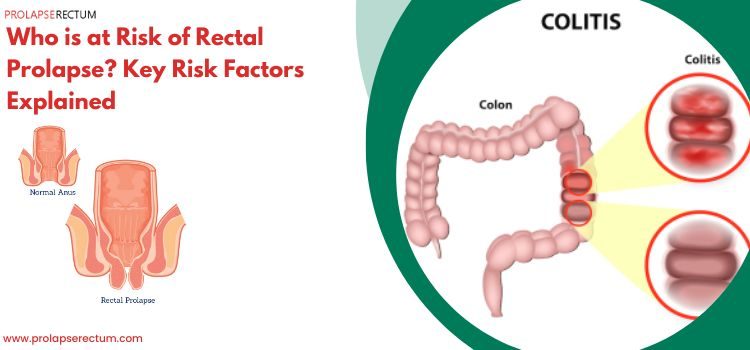Summary: Older adults, women, and patients with medical history have more chance of rectal prolapse. Early recognition and Ayurvedic therapy from Daya Ayush Therapy Centre help prevent worsening. Natural remedies ensure safe, effective, long-lasting relief.
In certain individuals, the rectum, or the terminal portion of the large intestine, can slide out from its usual position and protrude through the anus. This is called rectal prolapse. Although it sounds scary, it usually occurs over time. It is crucial to know the risk factors to find out who will be at higher risk for this condition.
Early detection makes it simpler to take preventative measures and have treatment undertaken before the issue worsens or gets more difficult to treat. So, without wasting any time, let’s read the whole blog.
Identifying People at Risk of Rectal Prolapse
Rectal prolapse could come with pain, painful bowel movements, and humiliation to most people. Though it can happen to anyone, there are circumstances that increase the likelihood of falling under the category of this condition. Knowing who is the risk allows for it to be easier to take preventive action, get early intervention, and be in better overall health. Let’s look at the most important risk factors. People who are at a higher risk of rectal prolapse
- Older Adults: Aging weakens the muscles of the pelvic floor, and prolapse is more common in older adults.
- Women: Women who have had many pregnancies or difficult labor during childbirth are more likely to develop rectal prolapse.
- People with Chronic Constipation: Repeated straining during a bowel movement puts pressure on the rectum.
- People with Chronic Diarrhea: Over time, loose stools can weaken the support of the rectum.
- Patients with Nerve or Muscular Problems: Disorders like nerve damage or spinal injury lead to rectal control problems.
- Individuals with Chronic Coughing: A chronic cough due to lung disease or smoking results in high pressure in the pelvis.
- Children with Weak Pelvic Muscles: In rare cases, children experience prolapse when they have abnormal muscle development.
- Individuals with A Family History: Heredity also plays a role in increasing the risk.
Summarization
Rectal prolapse can occur in anyone, yet there are some who are predisposed to it as a result of age, sickness, or way of life. Aging individuals, women after giving birth, and those with weak pelvic muscles have a higher chance. Prolonged constipation, chronic coughing, or too much lifting also puts one at higher risk.
At Daya Ayush Therapy Centre, you will get the best Ayurvedic medicines and treatment to cure the problem permanently. Our herbal medicines are handpicked and have no side effects like your regular medicines.
Questions That Are Frequently Asked
Q1. What age is most common for rectal prolapse?
Ans: Rectal prolapse most commonly affects older adults, especially women over 50, due to weakened pelvic floor muscles. However, it can also occur in young children.
Q2. How to avoid rectal prolapse?
Ans: Strengthen pelvic floor muscles, maintain healthy weight, eat fiber-rich diet, avoid straining during bowel movements, treat chronic cough or constipation early, and practice safe lifting techniques.
Q3. Does a rectal prolapse happen suddenly?
Ans: Rectal prolapse usually develops slowly over time, not suddenly. Weak pelvic floor muscles, chronic constipation, or straining gradually cause the rectum to slip out.
Q4. Does stress cause rectal prolapse?
Ans: Stress alone does not directly cause rectal prolapse, but chronic straining, constipation, and pelvic weakness, sometimes worsened by stress, can increase the risk.




